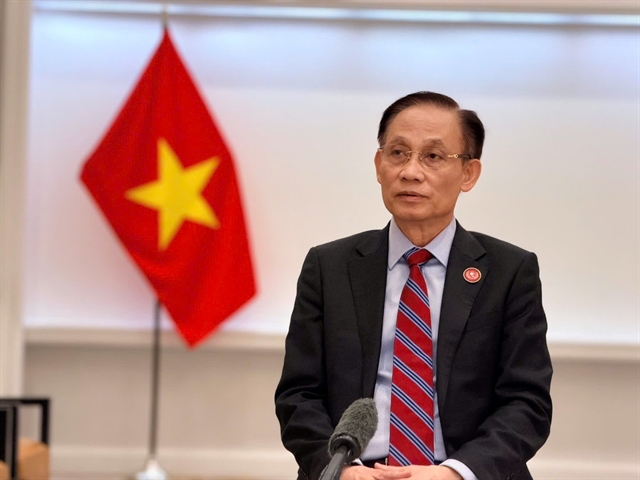 Society
Society

Members of the National Assembly’s Standing Committee on Saturday weighed in on the draft architecture law for the first time, demanding the law incorporate a combination of technical and artistic perspectives.
 |
Members of the National Assembly’s Standing Committee on Saturday weighed in on the draft architecture law for the first time, demanding the law incorporate a combination of technical and artistic perspectives.— VNA/VNS Photo Dương Giang |
HÀ NỘI — Members of the National Assembly’s Standing Committee on Saturday weighed in on the draft architecture law for the first time, demanding the law incorporate a combination of technical and artistic perspectives.
The idea of having a Law on Architecture was first brought up 20 years ago but it was not until this year that the Government managed to present a full draft law of four chapters and 37 articles.
NA Committee for Science, Technology and Environment chairman Phan Xuân Dũng said that buildings play a role in showcasing the characteristic culture of each country and its people.
“The issuance of the Law on Architecture will help the Government’s management work while orienting conservation efforts for national cultural values, contributing to the socio-economic development of the country,” he said.
Việt Nam’s temporary architecture was short of a touch of creativity, especially in urban cities which look vastly the same, said NA Committee for Culture, Education, Youth, Adolescents and Children chairman Phan Thanh Bình.
The draft architecture law mainly regulates activities of the architects, which was very important, he said, but more consideration should be paid to regulating the whole sector of which architects play only a part of.
“Architecture stands in between the boundaries of arts-culture and science-technology, so we have to look at the field from different perspectives of arts and science,” Bình said.
“The draft law focuses too much on managing technical matters but remains vague on arts-related ones, like how to promote creativity or what are the regulations regarding modern or traditional architecture.”
NA chairwoman Nguyễn Thị Kim Ngân also asked the Ministry of Construction which is in charge of drafting the law to be more clear on the five principles of the architecture it proposed.
They should integrate basic requirements for architecture, she said, including for example the harmony of culture and religion, the development of architectural spaces or the buildings’ suitability to the natural climate of each particular region.
The chairwoman also urged further consideration for the regulation to set up a National Architect Council, asking whether it was truly necessary and effective in managing the country’s general architects. — VNS




